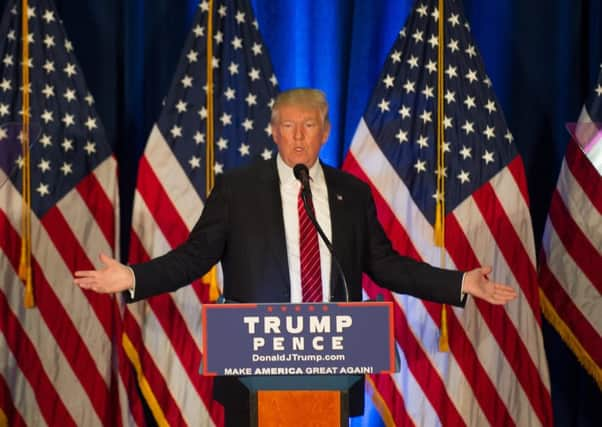Trump calls for '˜extreme' ideological vetting of immigrants
This article contains affiliate links. We may earn a small commission on items purchased through this article, but that does not affect our editorial judgement.


“Those who do not believe in our Constitution, or who support bigotry and hatred, will not be admitted for immigration into our country,” he said in a foreign policy address in Youngstown, Ohio.
“Only those who we expect to flourish in our country - and to embrace a tolerant American society - should be issued visas.”
Advertisement
Hide AdAdvertisement
Hide AdMr Trump’s proposals were the latest version of a policy that began with his unprecedented call to temporarily bar foreign Muslims from entering the country - a religious test that was criticised across party lines as un-American.
The Republican nominee has made stricter immigration measures a central part of his proposals for defeating the Islamic State group, a battle he said on Monday is akin to the Cold War struggle against communism.
He called for parents, teachers and others to promote “American culture” and encourage “assimilation”.
Mr Trump’s speech comes during a difficult time for his presidential campaign.
He has struggled to stay on message and build a consistent case against Democrat Hillary Clinton, repeatedly causing problems for the White House race with provocative comments that have deeply frustrated many in his own party.
Mrs Clinton has seized on Republican concerns about Mr Trump, highlighting the steady stream of party national security experts who say the billionaire tycoon is unfit to serve as commander in chief.
She kept up that argument on Monday night as she campaigned alongside Vice President Joe Biden in Scranton, Pennsylvania, a working class area where both have family ties.
Mr Biden called Mr Trump’s views “dangerous” and “un-American” and said that his false assertions last week about President Barack Obama founding IS could be used by extremists to target American service members in Iraq.
Advertisement
Hide AdAdvertisement
Hide AdMr Trump has since said he was being sarcastic in accusing Mr Obama of founding IS. Still, he directly blamed the president and Mrs Clinton, who served as secretary of state, for backing policies that “unleashed” the group, including withdrawing US troops from Iraq in late 2011.
He was vague about what he would do differently to hit IS in its strongholds in Iraq and Syria. He vowed to join any country that shares his goal of defeating the extremist group, regardless of other strategic disagreements, and named Russia as a nation he would like to improve relations with.
Mr Trump also pledged to end “our current strategy of nation-building and regime change” - a criticism that extends to policies of both parties.
His most specific anti-IS proposals centred on keeping those seeking to carry out attacks in the West from entering the US. He said attacks involving “immigrants or the children of immigrants” underscore the need to implement “extreme vetting”.
Trump aides said the government would use questionnaires, social media, interviews with family and friends or other means to vet applicants’ stances on issues including religious freedom, gender equality and gay rights.
Mr Trump did not clarify how US officials would assess the veracity of responses to the questionnaires or how much manpower it would require to complete such arduous vetting.
He did say that implementing the policy overhaul would require a temporary halt in immigration from “the most dangerous and volatile regions of the world that have a history of exporting terrorism”.
Advertisement
Hide AdAdvertisement
Hide AdThe nominee said: “We will stop processing visas from those areas until such time as it is deemed safe to resume based on new circumstances or new procedures.”
Mr Trump’s first announced his call for banning Muslims last year. He introduced a new standard following the June massacre at a gay nightclub in Orlando, vowing to “suspend immigration from areas of the world where there is a proven history of terrorism against the United States, Europe or our allies, until we fully understand how to end these threats”.
That proposal raised numerous questions that the campaign never clarified, including whether it would apply to citizens of countries like France, Israel, or Ireland, which have suffered recent and past attacks.
DOWNLOAD THE SCOTSMAN APP ON ITUNES OR GOOGLE PLAY